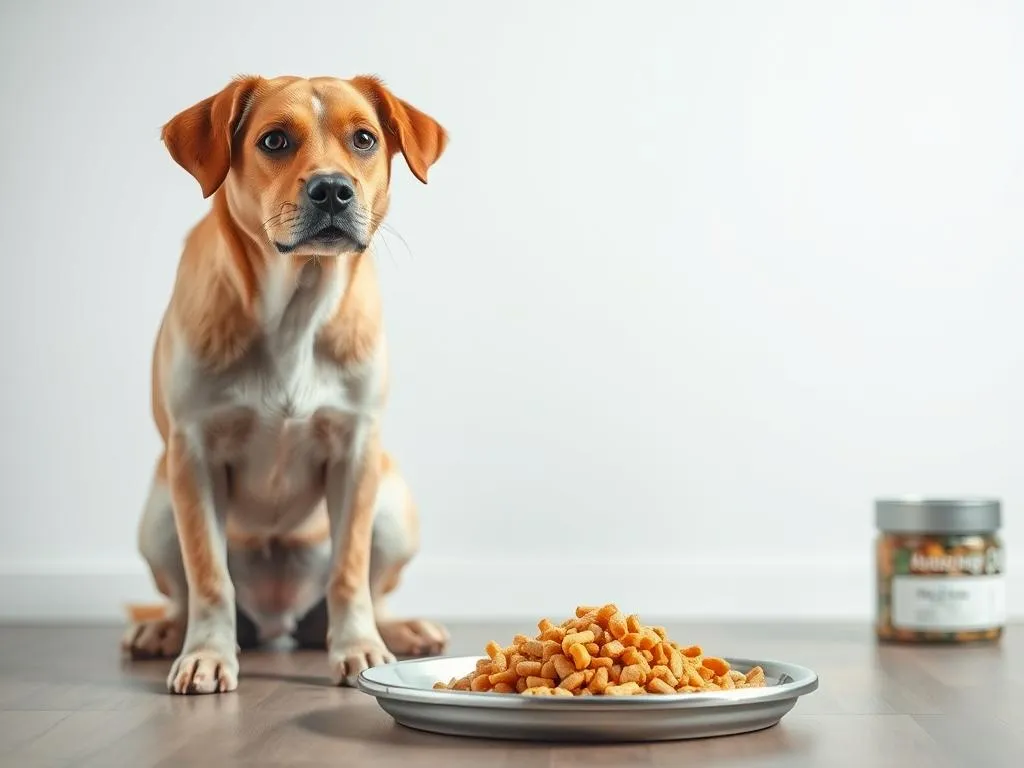
Introduction
Urinary incontinence in dogs is a condition characterized by the involuntary leakage of urine. This can manifest in various ways, such as dribbling urine while sleeping or even during wakeful moments. Various studies indicate that urinary incontinence affects a significant percentage of dogs, particularly in certain breeds, including spayed females of breeds like Labrador Retrievers, Boxers, and Dachshunds.
Proper nutrition plays a vital role in a dog’s overall health, and it’s increasingly recognized that diet can influence urinary health. The purpose of this article is to explore the connection between dog food and urinary incontinence, helping dog owners make informed dietary choices to support their furry friends’ health.
Understanding Urinary Incontinence in Dogs
What is Urinary Incontinence?
Urinary incontinence is defined as the involuntary loss of urine, which can lead to distressing situations for both dogs and their owners. Symptoms may include:
- Frequent urination
- Dribbling of urine
- Wet bedding or areas where the dog sleeps
- Urine leakage during exercise or excitement
Causes of urinary incontinence can be classified into medical and non-medical factors. Medical causes may include hormonal changes, urinary tract infections, and neurological issues, while non-medical factors often relate to age, breed predispositions, and even obesity.
Types of Urinary Incontinence
Hormonal incontinence is one of the most common types, especially in spayed female dogs. This occurs due to a decrease in estrogen, which can weaken the bladder sphincter. Breeds such as Doberman Pinschers, Boxers, and Beagles are often affected.
Neurological incontinence results from issues within the nervous system that hinder the dog’s ability to control urination. This can be due to spinal injuries or degenerative diseases.
Congenital issues involve anatomical problems from birth that can result in incontinence. Some dogs may be born with abnormalities in their urinary tract that predispose them to this condition.
The Role of Nutrition in Dog Health
Importance of a Balanced Diet
A balanced diet is essential for a dog’s overall health and well-being. Essential nutrients such as proteins, fats, carbohydrates, vitamins, and minerals play crucial roles in bodily functions.
The impact of diet on urinary health cannot be overstated. Certain nutrients can either support or hinder bladder function. For instance, adequate hydration is vital for flushing the urinary system and preventing infections that may lead to incontinence.
Common Ingredients in Dog Food
Dog food typically contains a mix of grains, proteins, and fillers. While some grains are beneficial, others can be problematic, especially for dogs with sensitivities.
Potential allergens and irritants like wheat, soy, and corn may trigger urinary issues in some dogs. Identifying and avoiding these ingredients can be a crucial step in managing urinary incontinence.
Can Dog Food Cause Urinary Incontinence?
Direct Links Between Diet and Urinary Health
Various scientific studies have explored the relationship between dog food and urinary health. Research has indicated that dogs consuming high-quality, balanced diets are less likely to experience urinary problems compared to those on lower-quality foods.
Case studies have also showcased instances where dogs with urinary incontinence improved significantly after dietary changes. For example, a dog that switched from a grain-heavy diet to a high-protein, low-carb diet showed noticeable improvements in urinary control.
Ingredients to Avoid
Certain ingredients in dog food can directly impact urinary health. High sodium content is one such ingredient; excessive salt can lead to increased thirst and urination, potentially exacerbating incontinence.
Artificial additives and preservatives found in many commercial dog foods may also have negative impacts on urinary health. Dogs can be sensitive to these chemicals, which may irritate the bladder.
Certain protein sources can contribute to urinary issues as well. For instance, low-quality meat by-products may not provide the necessary nutrition and can lead to various health problems, including urinary incontinence.
Recommended Dietary Changes
Choosing high-quality dog food can make a significant difference in managing urinary incontinence. Look for dog food with:
- Limited ingredients: To reduce the risk of allergic reactions.
- Grain-free options: For dogs sensitive to grains, which can irritate the bladder.
Homemade diets can also be beneficial but come with risks. If you decide to prepare your dog’s meals at home, ensure you consult with a veterinarian to create a nutritionally balanced diet.
Hydration is another crucial factor. Ensuring your dog has constant access to fresh water can help flush the urinary tract, reducing the risk of infections and other urinary issues.
Additional Factors Influencing Urinary Incontinence
Age and Breed Considerations
As dogs age, they experience changes that can affect urinary control. Older dogs may have weakened bladder muscles, leading to an increased risk of incontinence.
Certain breed-specific tendencies also play a role. Breeds like the Cocker Spaniel and the German Shepherd are more prone to urinary incontinence, necessitating special dietary considerations to help manage the condition.
Health Conditions and Medications
Existing health conditions such as diabetes or obesity can exacerbate urinary incontinence. A well-rounded diet is essential for managing these health issues and reducing the likelihood of urinary problems.
Medication impacts should also be considered. Some medications, such as corticosteroids, may affect bladder control, making it vital to monitor your dog’s response to any new medication closely.
Conclusion
In summary, there is a clear connection between dog food and urinary incontinence. High-quality, balanced nutrition plays a pivotal role in maintaining bladder health and minimizing urinary issues. It is crucial for dog owners to consult with veterinarians when considering dietary changes to ensure their pet’s unique health needs are met. Monitoring your pet’s diet and urinary health closely can help in the management and prevention of urinary incontinence.
By prioritizing proper nutrition and being aware of how various ingredients can affect your dog’s urinary health, you can help ensure a better quality of life for your furry friend.









